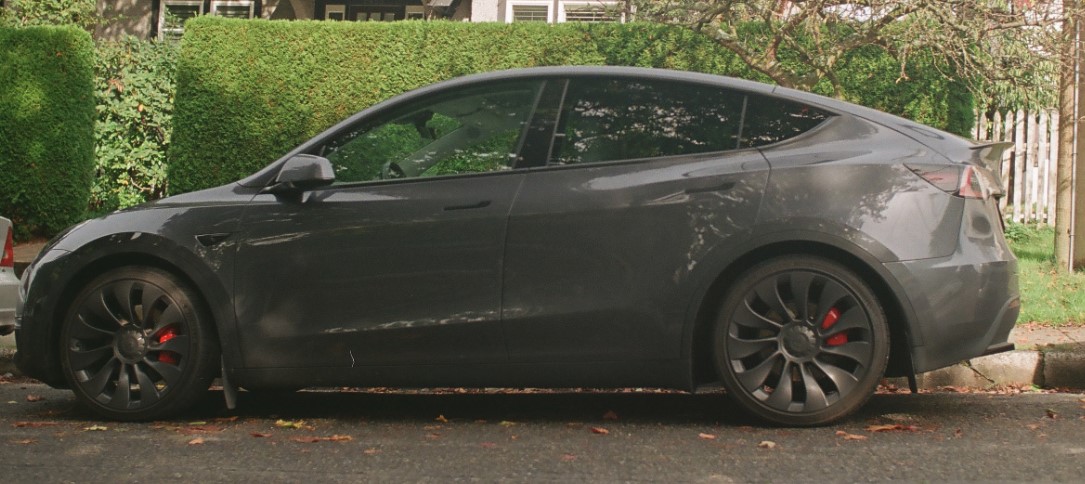The automotive industry is one of the most dynamic and fast-changing sectors of the global economy. With new technological advancements, sustainable energy sources, and changing consumer preferences, car manufacturers must constantly adapt to remain competitive in the market. In this article, we delve into the topic of Tesla depreciation versus other cars. We analyze the factors that contribute to Tesla’s longer holding value and compare it to the depreciation trends of other vehicles in the market.
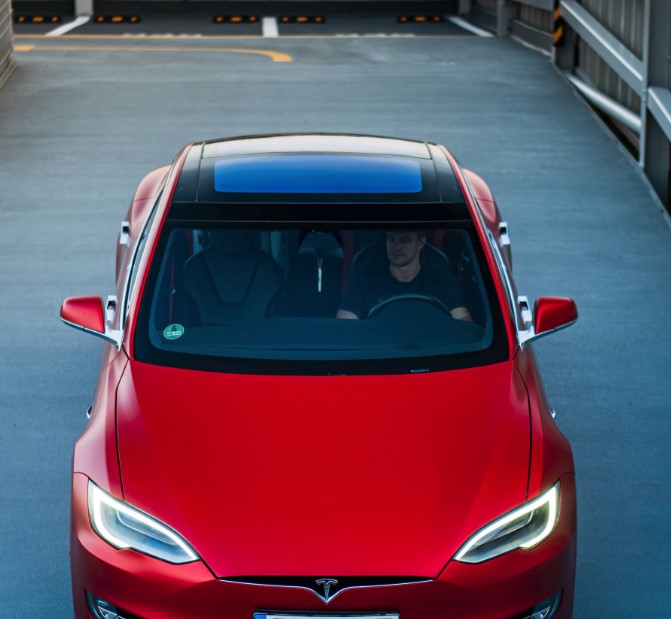
Key Takeaways
- Tesla’s unique factors can impact depreciation rates differently than traditional cars
- Resale value and long-term ownership costs play a significant role in determining the overall value of owning a car
- Eco-friendliness and sustainability of Tesla cars can influence depreciation rates and long-term value
- Predictions and future outlook for Tesla depreciation in comparison to traditional cars are essential in informed decision-making for the buyers
Understanding Depreciation in the Automotive Industry
Before comparing Tesla’s depreciation rates with other cars, it’s essential to understand what depreciation is and how it works in the automotive industry. Depreciation refers to the loss in value of a vehicle over time. It occurs due to various factors, including wear and tear, aging, and technological advancements in newer models.
Depreciation can have a significant impact on a car’s resale value, particularly for those who plan to sell or trade-in their vehicles. Understanding depreciation rates can help car buyers make informed decisions when selecting a car and estimating its long-term value.
The Factors That Affect Depreciation Rates
Several factors influence the depreciation rate of a car. One of the most crucial factors is the make and model of the vehicle. Luxury cars and high-end models often experience higher depreciation rates than less expensive models. This is because the initial purchase cost of the vehicle is higher, and the market demand for these models is often lower.
Other critical factors affecting depreciation rates include the vehicle’s condition, mileage, and age. Cars that are well-maintained and have low mileage tend to hold their value better than those that are older and have high mileage. Additionally, vehicles with a history of accidents or significant repairs can experience faster depreciation rates.
Do Teslas Depreciate in Value?

Like all cars, Teslas also experience depreciation over time. However, due to their unique features and market demand, Teslas often hold their value better than traditional cars.
Teslas are at the forefront of technological advancements in the automotive industry, particularly electric vehicles. They have a reputation for being eco-friendly and sustainable, appealing to a growing market demand for clean energy vehicles. As a result, Teslas have a higher resale value than many traditional cars.
Additionally, Teslas are well-known for their impressive performance and safety features, contributing to their sustained value over time. The brand’s reputation for quality and innovation is also a significant factor in retaining value, making them an attractive long-term investment for car buyers.
Tesla Depreciation compared to Other Cars
When comparing Tesla depreciation rates with traditional cars, studies show that Teslas generally maintain their value better over time. For example, in a study conducted by the automotive research firm iSeeCars, the Tesla Model 3 was found to have a 10.2% depreciation rate after one year of ownership, compared to the average depreciation rate of 20.1% for traditional cars.
Similarly, a study by the automotive research firm Edmunds found that the Tesla Model S maintained 61.2% of its value after three years, compared to an average of 49.2% for all luxury cars.
These data points suggest that Teslas may retain their value better than traditional cars, making them a better long-term investment for car buyers. However, several factors can affect depreciation rates, and individual results may vary depending on the make, model, and condition of the vehicle.
Tesla’s Unique Factors That Impact Depreciation
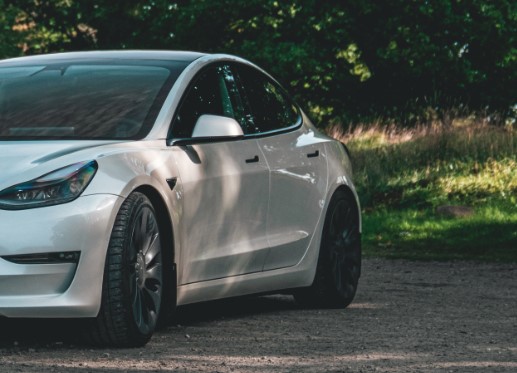
When it comes to depreciation rates, Teslas are known for their unique factors that set them apart from traditional cars. These factors include:
- Brand Reputation: Tesla’s brand reputation for producing high-end electric cars with advanced technology has contributed to its popularity and demand, making it a sought-after brand for car buyers. This demand, in turn, affects its depreciation rates, as higher demand leads to a slower rate of depreciation.
- Technological Advancements: Teslas are known for their advanced features, such as autopilot and self-driving capabilities. These technological advancements make these cars more desirable, particularly for tech-savvy buyers who are willing to pay a premium price for them. This also adds an additional layer of value, which helps to slow down the depreciation rates.
- Growing Demand for Electric Vehicles: In recent years, the demand for electric vehicles has steadily increased as people become more environmentally conscious. This has worked in Tesla’s favor, as they are one of the pioneers in electric vehicle production. With more people looking to buy eco-friendly cars, Teslas’ resale value holds up better than traditional vehicles, which depreciate faster.
These unique factors have a positive impact on Tesla’s depreciation rates, making them a reliable choice for car buyers who are looking for a car with better long-term value retention.
Comparison of Tesla Depreciation Rates with Traditional Cars
When it comes to car ownership, depreciation is a crucial factor to consider. In this section, we will compare Tesla’s depreciation rates with those of traditional cars, analyzing data on resale value, market demand, and technological advancements.
According to recent studies, Teslas hold their value better than many traditional cars in the same price range. In fact, after three years of ownership, Tesla Model S and Model X retain about 52% and 48% of their initial value, respectively, while the average luxury car only retains about 40-45%.
One of the factors that contribute to Tesla’s longer holding value is the brand’s reputation for innovation and sustainability. Tesla’s electric powertrain technology, autonomous driving capabilities, and eco-friendly image have contributed to its popularity and boosted demand, which in turn helps to maintain value over time.
Additionally, the growing demand for electric vehicles plays a significant role in Tesla’s depreciation rates. As more consumers turn to eco-friendly cars, the demand for Teslas continues to increase, which means that their resale value is likely to remain high.
On the other hand, traditional cars typically depreciate faster due to a variety of factors, including a shorter lifespan, less efficient engines, and lower resale demand. According to Kelley Blue Book, the average car retains about 35% of its original value after three years of ownership, compared to Tesla’s 50%.
Resale Value Comparison
| Car Brand | Resale Value After 3 Years |
|---|---|
| Tesla Model S | 52% |
| Tesla Model X | 48% |
| BMW 7 Series | 39% |
| Lexus LS | 35% |
| Mercedes-Benz S-Class | 38% |
As shown in the table above, Tesla’s resale value after three years is significantly higher than luxury car brands, such as BMW, Lexus, and Mercedes-Benz. This highlights the impact of depreciation on ownership costs and emphasizes the value of investing in a Tesla vehicle.
In conclusion, Tesla’s depreciation rates are lower than traditional cars, making them a smart investment for car buyers. The brand’s reputation for innovation, eco-friendliness, and strong demand in the electric vehicle market all contribute to its longer holding value.
Factors Impacting Depreciation in Traditional Cars
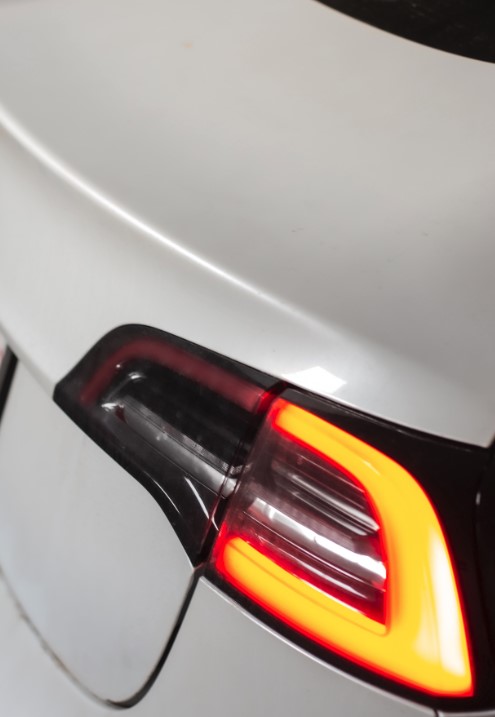
Traditional cars have their own unique set of factors that can impact their depreciation rates. The following are some of the most significant factors:
Brand Reputation
The brand reputation of a car manufacturer can affect the vehicle’s resale value. Brands with a history of producing reliable cars tend to hold their value better over time. On the other hand, brands with a reputation for producing less reliable cars may experience faster depreciation rates.
Market Demand
Market demand for a particular make and model of a vehicle can significantly impact depreciation rates. Popular cars tend to hold their value better than less popular ones. Additionally, market trends and shifts towards newer technologies can cause a sudden drop in demand for traditional cars, leading to a faster depreciation rate.
Vehicle Condition
The overall condition of the car, including its mileage, maintenance history, and appearance, can significantly impact its resale value. Cars that are well-maintained and in good condition tend to hold their value better than those with a history of mechanical issues, accidents, or neglect.
Model Popularity
Even within the same brand, some car models are more popular than others, and this can affect their depreciation rates. Popular models tend to hold their value better over time than less popular ones. Factors that can influence a car’s popularity include its design, features, performance, and overall reputation.
Understanding the factors that impact depreciation rates in traditional cars can provide valuable insights when comparing them to Tesla. The unique factors that contribute to Tesla’s longer holding value will be explored in the next section.
Resale Value Comparison: Tesla vs Other Car Brands
Tesla’s exceptional resale value is one of the primary factors setting it apart from other car brands. According to a recent study by Edmunds, which analyzed 2016 models, Tesla’s Model S retained an average of 70% of its value after three years, while the average for non-electric vehicles was 51%. This trend continued with 2017 models, with Tesla retaining 67% of its value after three years, versus 48% for non-electric cars.
| Car Brand/Model | Percentage of Resale Value After Three Years |
|---|---|
| Tesla Model S | 70% |
| Tesla Model X | 63% |
| BMW 7 Series | 47% |
| Audi A7 | 40% |
| Mercedes-Benz S-Class | 36% |
The table above compares the resale values of Tesla’s Model S and X with other luxury car brands. It is evident that Tesla vehicles retain their value better than their competitors.
The increasing demand for electric vehicles, coupled with Tesla’s innovative technology and strong brand reputation, contribute to the company’s high resale value. This trend is expected to continue and may even improve in the future as more consumers opt for sustainable transportation options.
Long-Term Ownership Costs: Tesla vs Other Cars
While resale value is a significant factor to consider when comparing Tesla with other car brands, long-term ownership costs also play a crucial role in determining the overall worth of owning a vehicle. Maintenance, fuel, insurance, and other expenses can significantly impact the ownership costs over time.
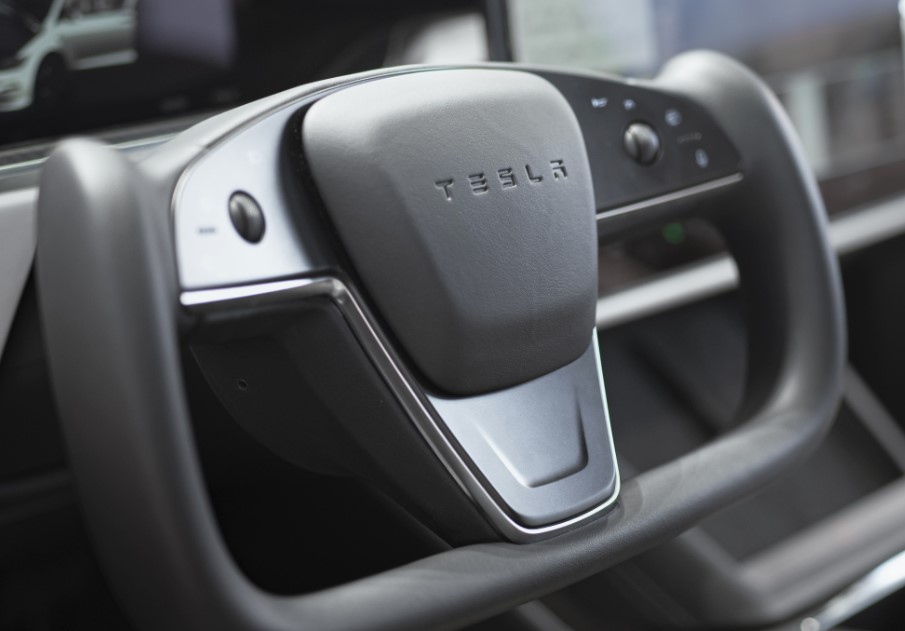
When it comes to maintenance, Teslas offer significant advantages over traditional cars. Since electric vehicles have fewer moving parts than combustion engines, they require less maintenance, resulting in lower long-term costs. Moreover, Tesla’s dedicated service centers offer quick and convenient service, reducing the time and hassle associated with traditional car repairs.
On the other hand, fuel costs are another significant consideration. Teslas are fully electric and do not require gasoline, resulting in lower fuel costs. According to Edmunds, Tesla Model 3 owners can save around $450 annually on fuel costs compared to similar gas-powered vehicles.
Insurance costs are also another factor to consider when comparing Tesla with other car brands. While Teslas are generally more expensive than traditional cars, they often have lower insurance rates due to their advanced safety features. Tesla’s Autopilot system, for instance, can significantly reduce the risk of accidents, leading to lower insurance rates. According to ValuePenguin, Tesla insurance rates are generally lower than other luxury brands like BMW or Mercedes-Benz. However, the insurance rates may vary depending on the specific model and other factors.
In conclusion, while Teslas may have a higher upfront cost compared to traditional cars, they offer significant advantages in terms of long-term ownership costs. Electric vehicles require less maintenance, have lower fuel costs, and often have lower insurance rates. These factors can lead to substantial savings over time, making Teslas an attractive option for car buyers.
Predictions and Future Outlook for Tesla Depreciation
As the automotive industry continues to shift towards electric vehicles, the future outlook for Tesla’s depreciation is promising. Tesla’s brand reputation, technological advancements, and the growing demand for electric vehicles are all factors that may positively impact its depreciation rates.
According to industry forecasts, the demand for electric vehicles is expected to increase significantly in the coming years. This trend is likely to contribute to the higher resale value of Teslas compared to non-electric vehicles.
Furthermore, Tesla’s continued investment in its technological advancements, including self-driving capabilities and enhanced battery technology, may also lead to increased resale values and longer holding periods.
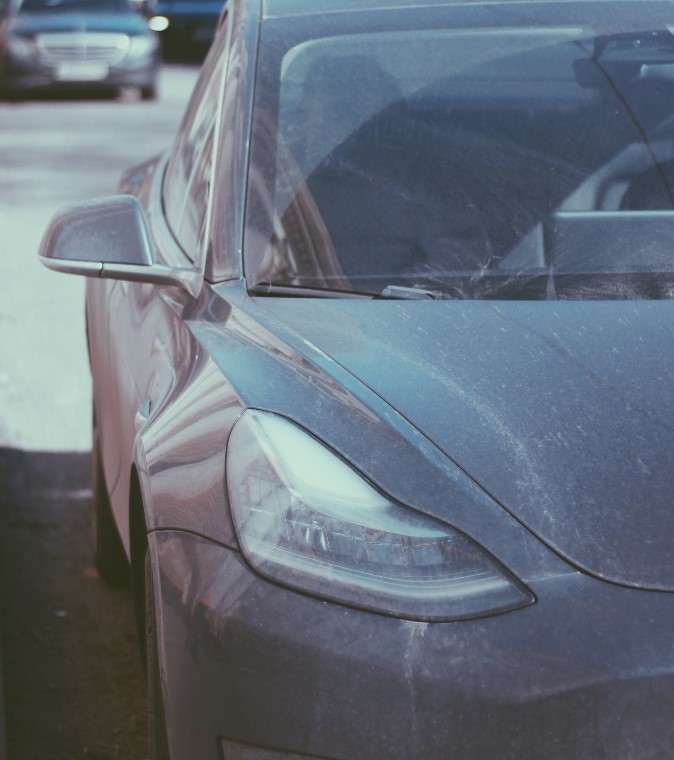
Industry Forecasts
Industry experts predict that electric vehicle sales will increase from 2.5% of the global market share in 2020 to 15% by 2025. By 2030, electric vehicles are projected to reach 50% of the market share, signaling a significant shift towards electric vehicles.
This trend is positive news for Tesla’s future outlook, as electric vehicles are expected to overtake traditional vehicles in terms of demand and popularity in the near future.
Technological Advancements
Tesla’s investment in technological advancements is a key factor in the brand’s appeal to consumers. The company’s focus on innovation has led to the development of self-driving capabilities, enhanced battery technology, and other features that set Tesla apart from traditional vehicles.
As these technologies continue to evolve and improve, Tesla’s vehicles may experience increased demand and longer holding periods, positively impacting depreciation rates.
Market Forecasts
Market forecasts suggest that Tesla’s resale values will remain strong in the coming years, with some projections indicating up to 70% of the original purchase price after five years of ownership.
Comparatively, traditional vehicles are expected to retain only 35-50% of their original purchase price over the same period.
| Tesla | Traditional Vehicles | |
|---|---|---|
| Resale Value after 5 Years | Up to 70% of original purchase price | 35-50% of original purchase price |
These projections highlight Tesla’s potential for longer holding periods and greater overall value than traditional vehicles, making it a strong contender for those seeking a long-term vehicle ownership option.
“Tesla’s focus on innovation and investment in technological advancements, combined with the growing demand for electric vehicles, make it a promising option for those seeking a long-term vehicle ownership option.”
Sustainability and Environmental Impact of Tesla Ownership
The increasing global concern for the environment has catapulted Tesla’s popularity due to its environmentally friendly features. Owning a Tesla car implies a commitment to sustainability, reducing carbon emissions, and conserving the environment. Unlike traditional cars that emit harmful gases and pollutants that damage the air quality and contribute to climate change, Teslas are electric cars that emit no pollutants while driving.
The batteries used in Tesla cars are recyclable, and the company has laid down measures to ensure proper and sustainable disposal once the battery is no longer useful. This sustainable disposal is not only beneficial to the environment, but it also ensures that the batteries’ elements can be ethically harvested and reused.
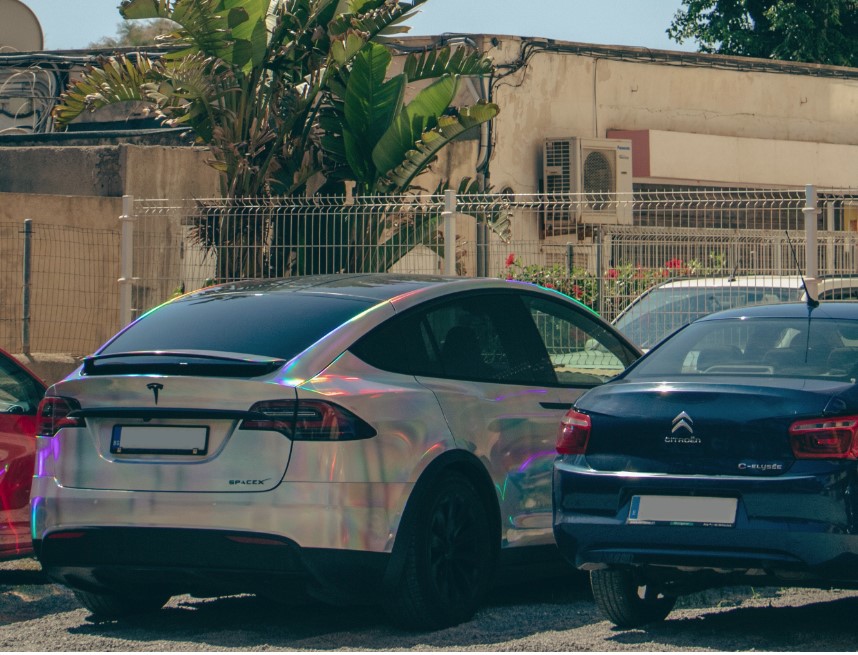
Tesla vehicles’ electric-powered engines require minimal maintenance, which saves money and reduces the environmental impact of car ownership. Whereas traditional cars always require oil changes, tune-ups, and other regular maintenance, Tesla cars have fewer moving parts and, therefore, fewer maintenance demands. This translates to fewer carbon emissions and less waste produced from maintenance activities.
Furthermore, Tesla owners can install solar panels or use other renewable energy sources to charge their vehicles, which increases the sustainability and reduces the carbon footprint associated with Tesla ownership further. This initiative also saves money on energy costs in the long run.
In summary, Tesla ownership provides an eco-friendly and sustainable option for car owners in comparison to traditional vehicles. Considering the increasing global concern for the environment, the sustainability aspect may significantly impact a car’s depreciation value. Therefore, Tesla’s focus on sustainability may have a positive effect on its depreciation rate in the future compared to traditional cars.
Conclusion
In conclusion, it is clear that Tesla’s depreciation rates are significantly different from traditional cars. The unique factors that contribute to Tesla’s longer holding value, such as brand reputation, technological advancements, and sustainable driving, have played a critical role in maintaining its value over time.
When comparing Tesla with other cars, it is essential to understand depreciation trends, resale value, and long-term ownership costs. Based on our comparative study, Tesla vehicles have a higher resale value and lower ownership costs compared to traditional cars, making them a more appealing long-term investment option.
Future Outlook for Tesla Depreciation
Looking ahead, industry trends suggest that Tesla’s depreciation rates will continue to remain relatively low compared to traditional cars. The growing demand for electric vehicles and advancements in EV technology are expected to increase the value and popularity of Tesla cars in the market.
Although future predictions are never certain, it is evident that Tesla is leading the way in sustainable driving and innovation. As more car buyers prioritize eco-friendliness and cost-efficiency, Tesla’s depreciation rates may continue to differentiate themselves from other cars in the market.
The Value of Sustainable Driving
Finally, it is worth noting that the depreciation rates of a car are not the only factor to consider when making a buying decision. Tesla’s commitment to sustainability and eco-friendliness provides additional value to car buyers who prioritize environmental impact.
By driving a Tesla, car owners are not only investing in a vehicle with low depreciation rates but also promoting a more sustainable future. As the world moves towards a greener tomorrow, owning a Tesla may become an even more valuable asset, both in terms of financial and ethical considerations.
Overall, our comparative study on Tesla depreciation versus other cars highlights the importance of considering multiple factors when making a car-buying decision. By understanding the unique factors that contribute to Tesla’s long-term value, car buyers can make an informed decision that not only benefits their finances but also the planet.
FAQ
Do Teslas depreciate in value?
Teslas generally have lower depreciation rates compared to traditional cars. Their longer holding value can be attributed to factors such as brand reputation, technological advancements, and the growing demand for electric vehicles.
How does depreciation in the automotive industry affect vehicle value?
Depreciation refers to the loss of value over time that a vehicle experiences. It can significantly impact the resale value and overall ownership costs of a car. Factors such as market demand, brand reputation, and vehicle condition influence depreciation rates.
What unique factors impact Tesla’s depreciation rates?
Teslas have certain unique factors that can influence their depreciation rates differently than other cars. These factors include the brand’s reputation for electric vehicles, technological advancements, and the increasing demand for sustainable transportation options.
How does Tesla’s depreciation compare to traditional cars?
Comparing Tesla’s depreciation rates to traditional cars, Teslas tend to retain their value better over time. Factors such as brand reputation, market demand, and technological advancements contribute to Tesla’s stronger holding value.
What factors impact depreciation in traditional cars?
Depreciation in traditional cars is influenced by various factors, including brand reputation, market demand, vehicle condition, and model popularity. These factors can affect the resale value and depreciation rates of non-electric vehicles.
How does Tesla’s resale value compare to other car brands?
When compared to popular non-electric car brands, Teslas often have higher resale values. Their reputation as sustainable, innovative vehicles contributes to their stronger resale value in the market.
What are the long-term ownership costs of Tesla vehicles compared to traditional cars?
Beyond resale value, long-term ownership costs play a significant role in determining the overall value of owning a car. Tesla vehicles generally have lower maintenance and fuel costs compared to traditional cars, which can contribute to lower ownership expenses.
What are the predictions and future outlook for Tesla depreciation?
The future outlook for Tesla depreciation is influenced by industry trends, advancements in electric vehicle technology, and market forecasts. As the demand for electric vehicles grows and technology improves, Tesla’s depreciation rates may remain favorable compared to traditional cars.
How does Tesla ownership impact sustainability and the environment?
Tesla ownership aligns with sustainability and has a positive environmental impact. Driving an electric vehicle reduces carbon emissions and dependence on fossil fuels. These eco-friendly aspects can influence the depreciation rates and long-term value of Tesla vehicles.
